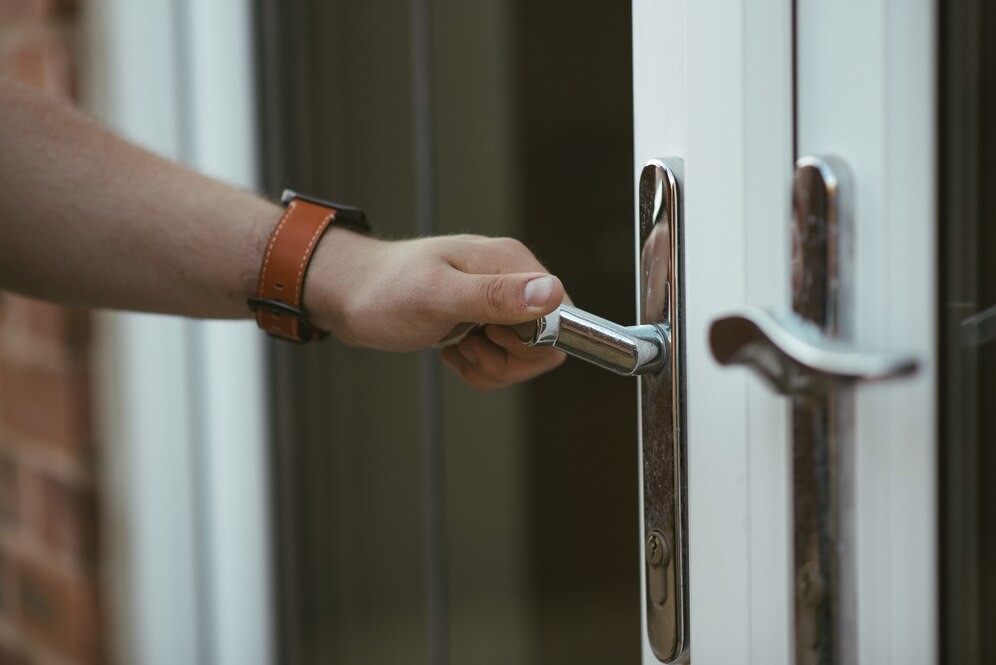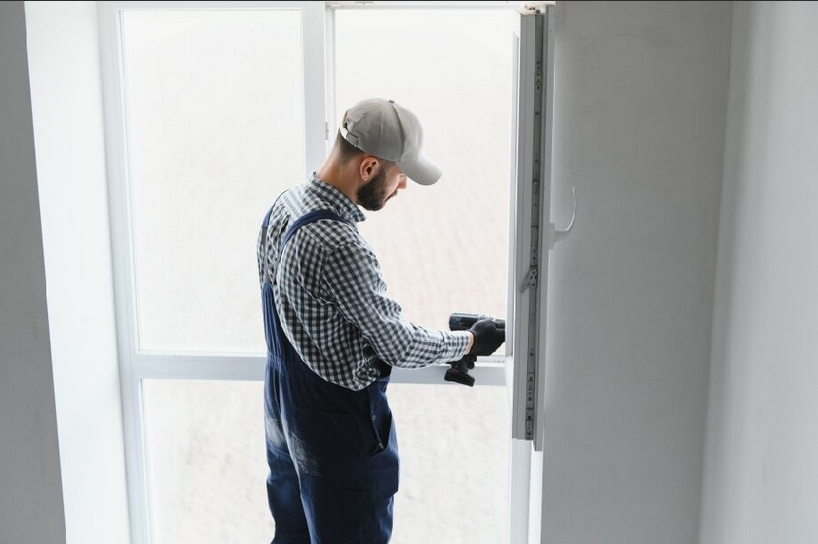
Choosing the right doors and windows designed specifically for noise reduction can enhance the quietness of your home, providing a sanctuary from the outside world.
This article explores the best window and door options for noise reduction in urban areas.
Why soundproofing is crucial in urban areas
Harvard studies have demonstrated that noise pollution contributes to hearing loss and can also cause serious health consequences, such as:
- Cardiovascular disease
- Type 2 diabetes
- Sleep disturbances
- Stress
- Mental health and cognition problems
- Memory impairment and attention deficits
- Childhood learning delays
- Low birth weight
The best option to avoid these problems is to invest in soundproof windows and doors to create a barrier between the noisy outside and the quiet inside your home.
A quieter environment contributes to better sleep, raises your ability to concentrate, and offers a higher quality of life.
However, soundproofing goes beyond health and includes an increase in property value. Homes in noisy urban areas with effective soundproofing solutions are often more desirable to potential buyers.
Window technologies and materials for noise reduction
Double and triple glazing
Double and triple-glazed windows are among the most effective solutions for noise reduction. These windows feature two or three layers of glass, separated by air or gas-filled spaces.
This design works by creating an additional barrier for sound waves to penetrate. The more layers of glass, the more difficult it becomes for sound to travel through, effectively reducing the noise level entering your home.
Double-glazed windows are an excellent choice for most urban homes, balancing noise reduction and energy efficiency.
However, triple-glazed windows may be worth the investment if you live in a boisterous area, such as near a busy highway or an airport. The additional layer of glass provides more significant noise reduction, ensuring a quieter interior.
Laminated glass
Laminated glass is another powerful option for reducing noise. This type of glass consists of two or more layers of glass bonded with a polyvinyl butyral (PVB) layer. The PVB layer makes the glass stronger and acts as a sound-dampening barrier.
The PVB layer works by absorbing sound energy, preventing it from passing through the glass and into your home. This makes it an ideal choice if you are looking for additional soundproofing measures.
Vinyl and fiberglass frames
These materials are among the best options for soundproofing, as they provide a tight seal that prevents air and sound from leaking through.
Vinyl frames are popular due to their affordability, low maintenance, and decent soundproofing capabilities. They offer a good level of noise reduction and are resistant to moisture.
Fiberglass frames, on the other hand, are known for their superior strength and thermal insulation properties. They expand and contract less than vinyl, ensuring a tighter seal over time. This tight seal is necessary for effective noise reduction, as even small gaps can allow sound to penetrate.
Additionally, fiberglass frames are more resistant to temperature fluctuations, which can improve the window’s overall performance in soundproofing and energy efficiency.
Doors for sound insulation

The benefits of solid core doors
Solid core doors are constructed from dense materials, such as wood or composite. The mass of these doors creates a barrier that absorbs and dampens sound waves, preventing them from passing through into your home.
The Importance of Seals and Sound Barriers for Doors
Even the best solid-core door will only be effective at reducing noise if it is properly sealed. Using acoustic seals and sound barriers around your doors is essential to maximize noise reduction.
These seals are typically made of dense rubber or foam and are designed to compress when the door is closed, creating a tight seal that blocks sound from entering.
Installing door sweeps or thresholds can also prevent sound from sneaking in through any gaps. Together, these solutions can enhance the overall sound insulation.
How technology promotes insulation and reduces noise
Automatic doors and windows offer convenience and improved sound insulation. They can be designed to close safely, ensuring a tighter seal that prevents sound from leaking in or out.
Some advanced automatic doors and windows are also equipped with features like sound-dampening materials or even acoustic insulation built into the door itself.
If you’ve understood the importance of soundproofing doors and windows and need help knowing where to start, the Top Notch Remodeling team is here to help you improve your home the way you want.
Tips for enhancing acoustic insulation
Here are some essential tips to ensure your windows and doors provide the best noise reduction:
Proper installation of doors and windows for maximum soundproofing
Seal Gaps and Cracks
Ensure that windows and doors are correctly sealed to prevent sound leaks. Use high-quality weatherstripping and caulking around the frames to close gaps that could let noise in.
Frame and Fit
Make sure that the frames are securely fitted and there is no movement. A well-installed frame minimizes vibration and sound transmission. Consider using a professional installation service from a reliable door and window installation company.
Correct Spacing
For double or triple-glazed windows, ensure the spacing between the panes is consistent and meets manufacturer specifications. Incorrect spacing can compromise the acoustic insulation’s effectiveness.
Additional measures to further reduce noise
Acoustic Curtains
Heavy, dense curtains designed for acoustic purposes can further help in reducing external noise. These curtains are made from materials that absorb sound and can be a simple yet effective addition to your soundproofing strategy.
Interior Blinds
Specialized blinds that include sound-absorbing materials can also help reduce noise. They work similarly to acoustic curtains by absorbing sound waves and reducing reverberation within the room.
Invest in Properly Installed Windows and Doors

If you’re ready to reduce noise in your home and improve your quality of life, reach out to us for a free consultation!
Our experts at Top Notch Remodeling specialize in the installation of windows and doors that offer superior acoustic insulation.
Contact us today to learn more about creating a quieter, more comfortable home environment.



